

— Products —
 Consumer hotline +8618073152920
Consumer hotline +8618073152920 WhatsApp:+8615367865107
Address:Room 102, District D, Houhu Industrial Park, Yuelu District, Changsha City, Hunan Province, China
All products
Automated Weather Stations (AWS) is an automated weather observatory for collecting and recording weather data.AWS consists of multiple sensors and instruments that measure and record different weather elements such as temperature, humidity, wind speed and direction, barometric pressure, precipitati
Tel/WhatsApp:+8615367865107
Email:Arvin@niubol.com +Nearly 100 partner company in more than 68 countries. We are committed to providing high-quality, practical products to meet your needs and help you solve problems.Product Details
Agricultural weather station is a kind of equipment that can automatically observe and store meteorological observation data, which is mainly used for monitoring various meteorological elements in agricultural cultivation.
The main function of the agricultural meteorological station is to monitor real-time changes in meteorological elements such as wind, temperature, humidity, barometric pressure, grass temperature and soil moisture content, so as to provide reliable data support for agricultural cultivation. This kind of equipment can monitor many meteorological parameters such as wind speed, rainfall, air temperature, air humidity, light intensity, soil temperature, soil humidity, atmospheric pressure, etc. on-site in all-weather according to the actual needs, which improves the ability of agricultural production to cope with the risks of the natural environment, and makes the disadvantaged traditional agriculture become a modern industry with high efficiency.
Agricultural weather station consists of five parts: sensor, collector, solar power supply system, stand support, and cloud platform, which can be widely used in various fields of agriculture such as smart greenhouses.
| Measured | Measuring range | Resolution | Precision |
| Humidity | 0~100%RH | 0.1%RH | ±0.5℃ |
| Temperature | -40~80℃ | 0.1℃ | ±5%RH |
| Atmospheric pressure | 10~1200hPa | 0.1hPa | ±1.5hPa |
| Soil temperature | -40~80℃ | 0.1℃ | ±0.5℃ |
| Soil Humidity (moisture) | 0-100%RH | 0.1%RH | ±5%RH |
| Conductivity | 0-10000us/cm | 1us/cm | ±5% |
| Wind speed | 0~70m/s | 0.1m/s | ±(0.3+0.03V)m/s |
| wind direction | 0~360° | - | ±3° |
| Illuminance | 0-200000Lux | - | ±7% |
| Rainfall | 0-4mm/min | 0.2mm | ±4% |
| Solar radiation | 0~2000W/m2 | - | ≤5% |
| CO2 | 0~2000ppm | 1ppm | ±7% |
| Supply mode | 220V | DC12-24V | solar power optional |
 |  |  |  |  |
| Anemometer Wind Speed sensor | Wind direction sensor | Tipping bucket rain gauge sensor | Tipping bucket rain gauge sensor | Piezoelectric Rain Gauge |
 |  |  | 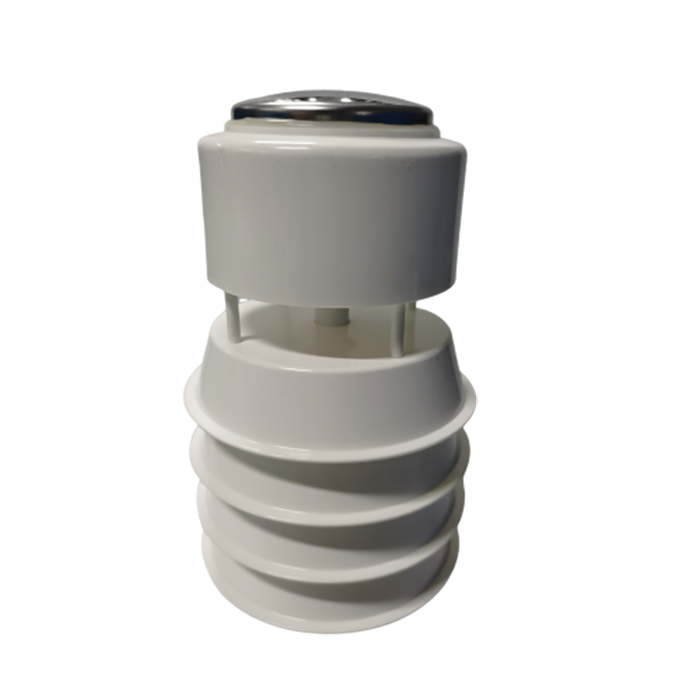 | 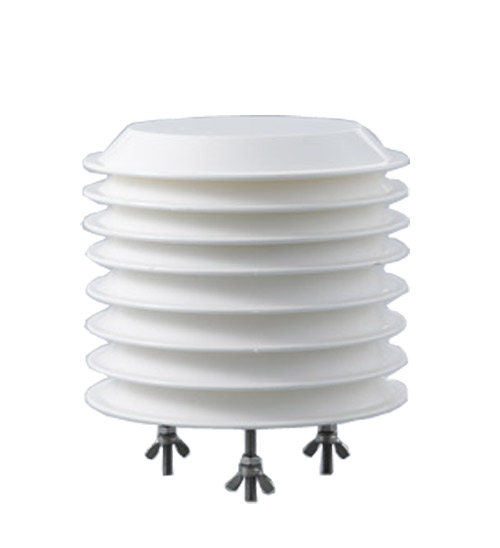 |
| Atmospheric Temperature Humidity air pressure Sensor | ultrasonic wind speed and direction sensor | 5 in1 Ultrasonic Weather Station Sensor | 7 in1 Ultrasonic Weather Station Sensor | Carbon dioxide(CO2) sensor |
 |  |  |  | 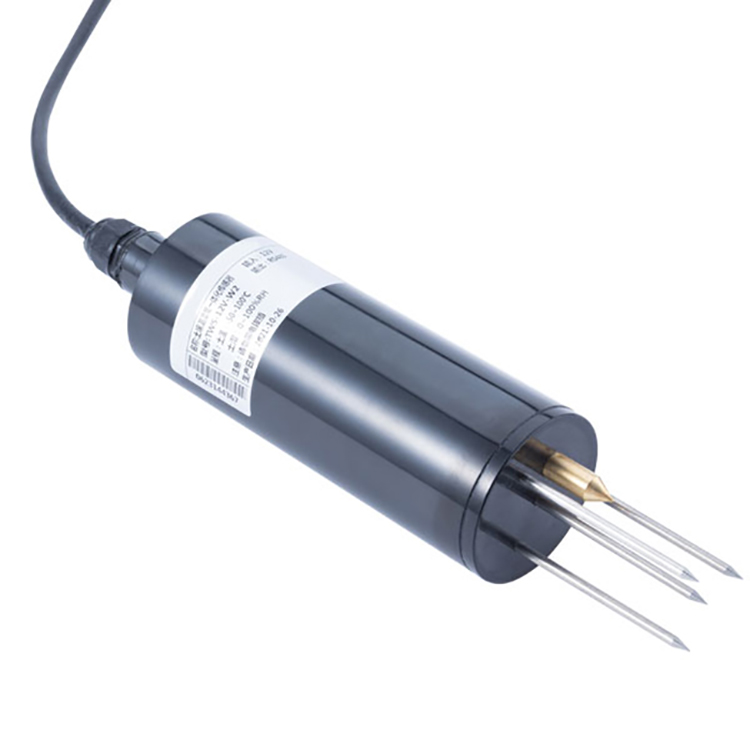 |
| Solar Radiation Sensor | Solar Radiation Sensor | Photosynthetically Active Radiation Sensor | illumination sensor | Soil Moisture Temperature sensor |
Weather stations play a crucial role in agriculture by providing valuable data on weather conditions that can help farmers make informed decisions regarding irrigation, crop management, and pest control. Here are some key components and features of weather stations used in agriculture:
1. Temperature and Humidity Sensors: These sensors measure air temperature and relative humidity, which are essential for understanding the microclimate and optimizing crop growth.
2. Rain Gauge: A rain gauge measures the amount of precipitation, helping farmers determine whether additional irrigation is necessary or if rainfall is sufficient for crop needs.
3. Wind Speed and Direction Sensors: Wind sensors provide information on wind speed and direction, which helps in understanding airflow patterns, estimating evapotranspiration rates, and managing spray applications.
4. Solar Radiation Sensor: Solar radiation sensors measure the intensity of solar radiation, providing insights into the available energy for photosynthesis and crop growth.
5. Leaf Wetness Sensor: Leaf wetness sensors detect the presence and duration of moisture on plant surfaces, aiding in disease prevention and optimizing irrigation schedules.
6. Soil Moisture Sensors: Soil moisture sensors measure the water content in the soil, enabling farmers to monitor soil moisture levels and make informed decisions about irrigation scheduling.
7. Barometric Pressure Sensor: Barometric pressure sensors measure atmospheric pressure changes, which can indicate approaching weather systems and help predict short-term weather conditions.
8.Photosynthetically Active Radiation (PAR) Sensors: Measure the portion of solar radiation that can be used by plants for photosynthesis.This information helps in determining the light needs of crops and can influence decisions about crop planting and spacing.
9. Data Logger: A data logger collects and stores data from various sensors installed in the weather station. It enables long-term monitoring and analysis of weather patterns and trends.
10. Wireless Connectivity: Many modern weather stations offer wireless connectivity options, enabling real-time data transmission and remote access to weather information via smartphones or computers.
11. Weather Forecast Integration: Some advanced weather stations can integrate with weather forecasting services, providing farmers with accurate short-term and long-term weather predictions to optimize farm management practices.
It's worth noting that the specific requirements of a weather station for agriculture may vary depending on the location, crop types, and specific needs of the farm. Farmers should consider these factors when selecting a weather station to ensure it meets their specific requirements and helps optimize agricultural practices.
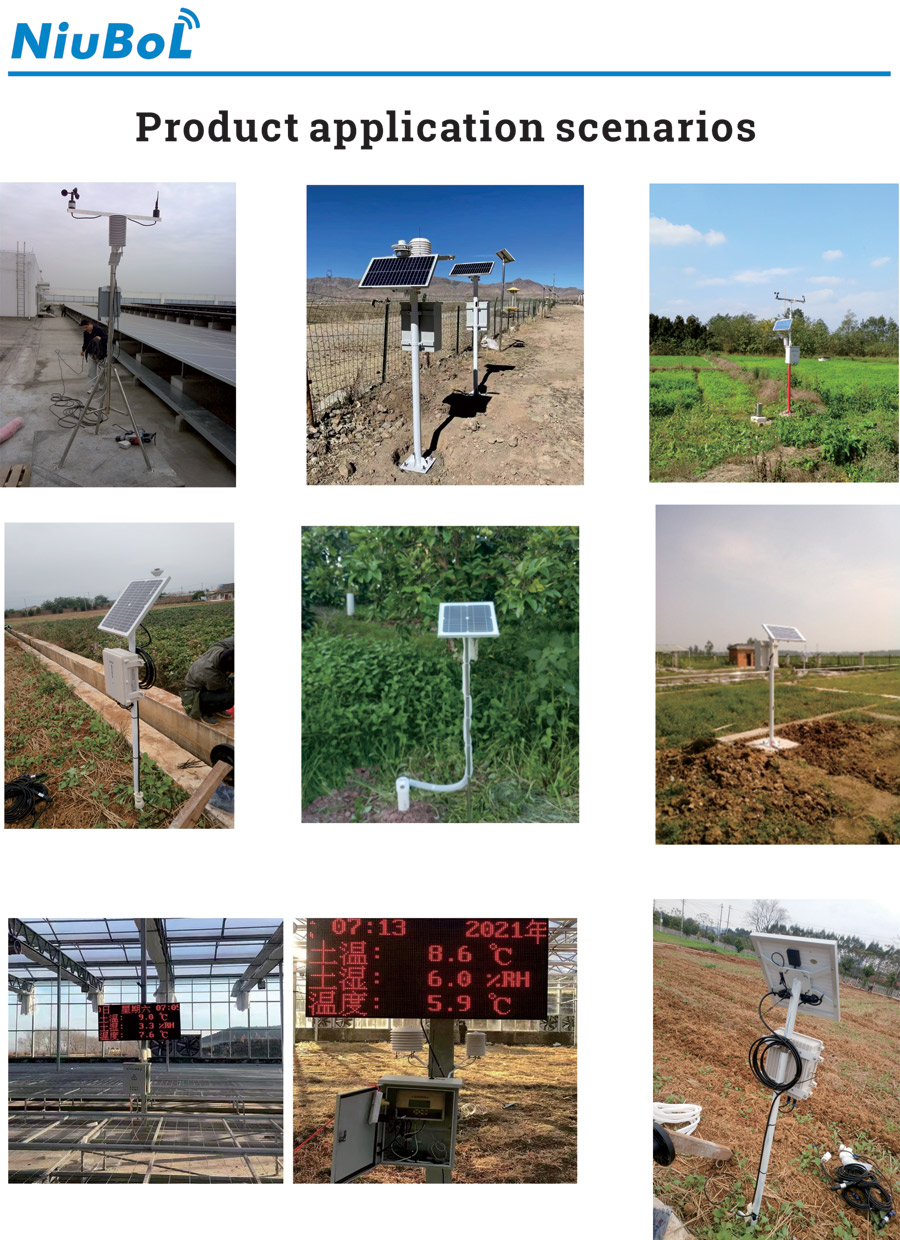
Weather stations have a major value and role in agriculture, providing farmers with valuable data on weather conditions and helping them make informed decisions to optimise crop growth and management. The following are the major values and roles of Weather Stations for Agriculture:
1. Weather forecasting and early warning: By collecting and analysing weather data, weather stations are able to provide accurate weather forecasting and warning information. For farmers, this can help them keep abreast of upcoming weather changes so that they can make good arrangements for farm management, irrigation and harvesting.
2. Irrigation management: Meteorological stations can provide data on atmospheric humidity, precipitation and evapotranspiration to help farmers determine the moisture content of the soil and formulate reasonable irrigation schedules. This can avoid over-irrigation or insufficient water, improve irrigation efficiency and ensure normal growth of crops.
3. Pest and disease monitoring: Weather stations can provide weather data related to pests and diseases, such as temperature, humidity and wind speed. Based on these data, farmers can predict the occurrence and spreading trend of pests and diseases, and take timely and appropriate control measures to reduce the damage of pests and diseases to crops.
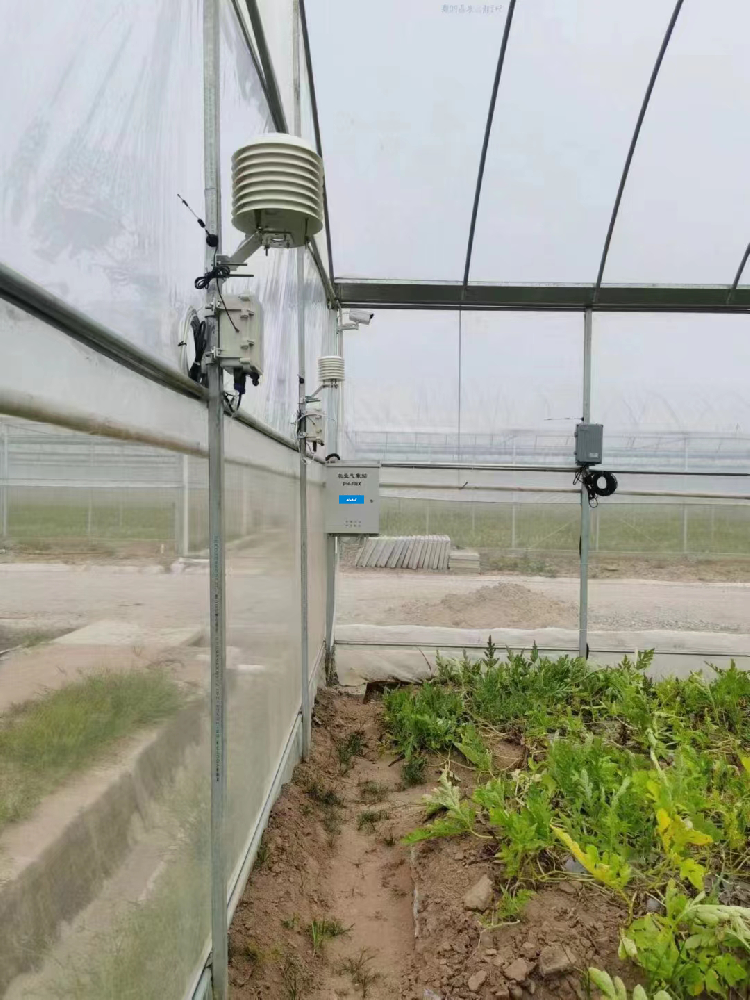
4. Agricultural product storage management: Temperature and humidity data provided by meteorological stations are essential for the storage management of agricultural products. Farmers can adjust the storage environment based on these data to maintain the quality and extend the freshness period of agricultural products.
5. Agricultural insurance: Meteorological data recorded and reported by meteorological stations can be used as a basis for agricultural insurance, helping farmers to assess and declare crop or farm losses. This helps protect farmers' interests and stabilise agricultural production.
6. Scientific research and decision support: Meteorological data collected by meteorological stations can be used for scientific research and decision support. By analysing historical meteorological data, agricultural researchers and government policymakers can understand the trend of climate change and formulate appropriate policies and measures for agricultural development.
All in all, Weather Stations for Agriculture provide an important information base for agriculture, which can help farmers make more informed decisions, improve crop yields and quality, reduce agricultural risks, and promote the sustainable development of agriculture.
Sensors & Weather Stations Catalog
Agriculture Sensors and Weather Stations Catalog-NiuBoL.pdf
Weather Stations Catalog-NiuBoL.pdf
Related recommendations
 Multi-Depth Soil Sensor RS485
Multi-Depth Soil Sensor RS485 TDR Soil Moisture Sensor
TDR Soil Moisture Sensor Pyranometer Solar Radiation Sensors
Pyranometer Solar Radiation Sensors Soil ph sensor
Soil ph sensor Tipping Bucket Rain Gauge
Tipping Bucket Rain Gauge Air Temperature and Humidity Sensor
Air Temperature and Humidity Sensor
Screenshot, WhatsApp to identify the QR code
WhatsApp number:+8615367865107
(Click on WhatsApp to copy and add friends)